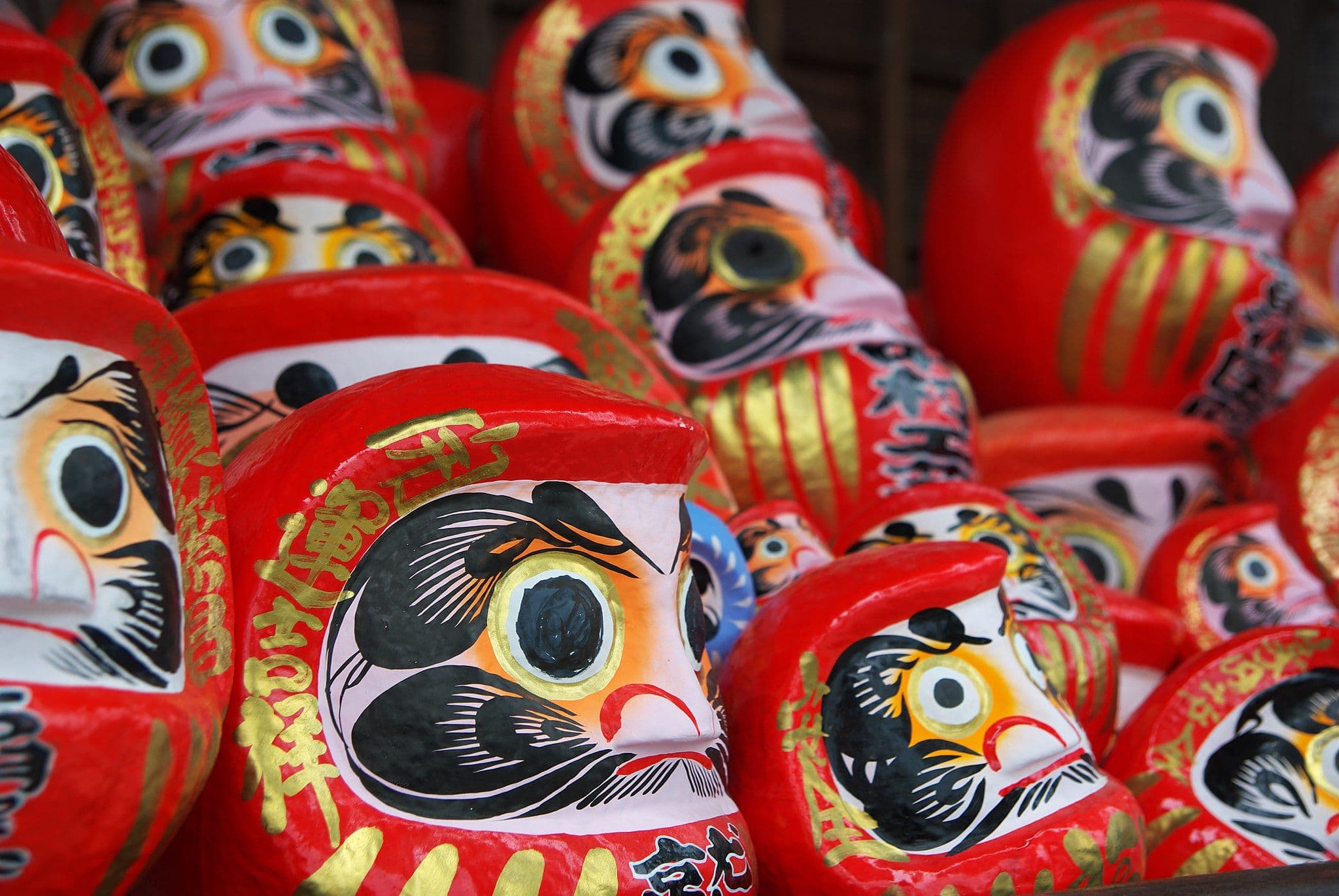
Daruma doll
達磨Daruma, also known as Bodhidharma, is a revered figure in Japanese culture and is often depicted in artwork and sculptures. He is considered the founder of Zen Buddhism and is believed to have traveled from India to China in the 5th century CE to spread the teachings of Buddhism.
The origin of Daruma dolls, which are a popular Japanese traditional toy, can be traced back to the legend of Bodhidharma. It is said that during his nine years of meditation in a cave, he lost the use of his arms and legs. As a result, the Daruma doll was created with a round shape and no arms or legs to remind people of the importance of perseverance and never giving up on their goals.
The Daruma doll is typically made of papier-mâché and comes in a variety of colors, with the most popular being red. The doll is often sold with blank white eyes, and the tradition is to color in one eye when setting a goal or making a wish, and then color in the other eye once the goal has been achieved. This process symbolizes the idea of keeping an eye on one's goals and staying focused until they are accomplished.
In addition to the Daruma dolls, there are also many temples and shrines dedicated to Daruma throughout Japan. One of the most famous is the Daruma-dera temple in Kyoto, which is said to have been founded by Bodhidharma himself. Visitors to the temple can purchase Daruma dolls and have them blessed by the temple's monks.
Overall, Daruma is a significant figure in Japanese culture, and his teachings and influence continue to be felt in modern times.
Last Updated: